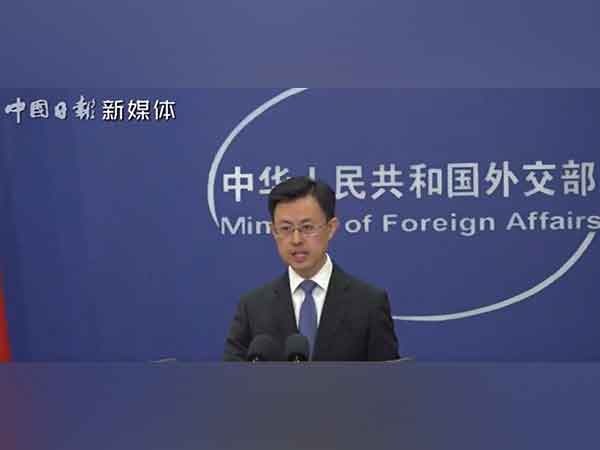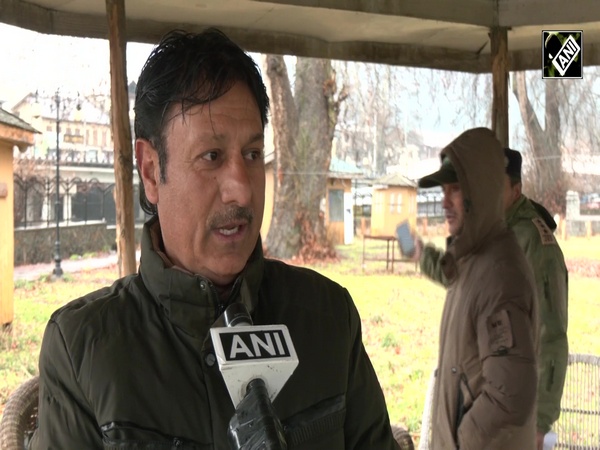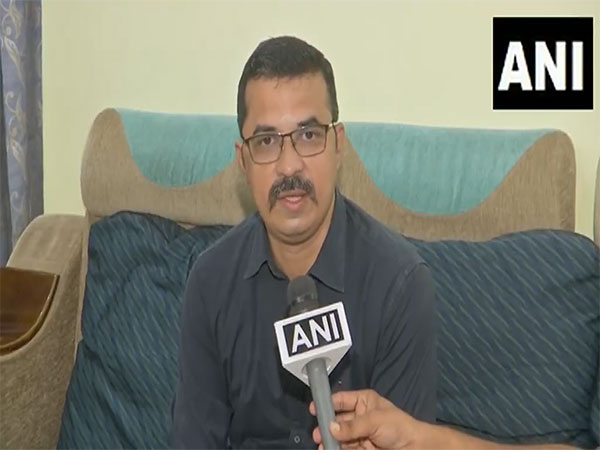
China scoops up every advantage from Trump's chaotic tendencies
Apr 01, 2025
Hong Kong, April 1 : "Going with China is going with opportunities. Believing in China is believing in tomorrow. Investing in China is investing in the future," Chairman Xi Jinping told a group of more than 40 foreign business executives in a meeting in Beijing on
March 28, 2025.
Xi is positioning China as a stable force for good and a land of opportunity, holding out an olive branch for foreign businesses and governments. Compared to the chaos that US President Donald Trump is leaving behind as he divisively implements his "America first" policy, China might appear as a relatively stable alternative--to the gullible, at least.
Since 2017, one of China's central arguments has been that it is a responsible power upholding the status quo of the old international order. As Xi himself said back then, "We should adhere to multilateralism to uphold the authority and efficacy of multilateral institutions. We should honor promises and abide by rules. One should not select or bend rules as he sees fit..."
Such refrains continue and are gaining steam as the world watches, stupefied at Trump's chaotic policies. Unfortunately, Beijing's pitches resonate with audiences. Even though Beijing's rhetoric is all about upholding international rules and norms, its behavior sharply diverges from this. This is not just a mismatch between words and actions; China is blatantly lying to cover up its aggression.
Even while modeling itself as the new partner of choice to provide stability in an uncertain world, the Chinese Communist Party's (CCP) real aim is to weaken democracies and give itself greater freedom of action. Furthermore, Beijing urges others to follow the rules to which they have subscribed while simultaneously criticizing those same rules as being biased.
It argues, therefore, that it is absolved from heeding them. Using this logic, Foreign Minister Wang Yi promised to "safeguard...the international system with the United Nations at its core," and at the same time reject inconvenient international rulings.
Peter Mattis, President of The Jamestown Foundation think-tank in the USA, noted, "Beijing has benefited enormously from the international system to date, but especially when other powers are restrained by rules it claims are biased, and so chooses not to follow."
Even while officials emptily mouth China's adherence to international rules, to more select audiences Xi heralds the need for "a new type of international relations". For domestic audiences, Xi and his elites urge the populace towards "struggle and change".
Mattis commented, "This divergence in rhetoric suggests that the words of CCP leaders should not be taken at face value and that Beijing should instead be judged by its actions. However, there, too, it has consistently violated rules and norms that do not align with its preferences."
An obvious example is China's 2016 trashing of the Permanent Court of Arbitration's verdict over China's illegal territorial claims in the South China Sea. In 2024, the Chinese Embassy spokesperson in Manila characterized the ruling as "essentially a political circus dressed up as a legal action ... China does not accept or recognize it and will never accept any claim or action thereon".
Mattis concluded, "Beijing's ostensible support for international rules and institutions that restrain the United States and European powers will continue to be a theme as long as the CCP leadership sees that the narrative has traction." He warned, "Concerns about the Trump administration's inconsistency make the CCP's status quo narrative seem soothing. However, American and European governments should not mistake these narratives for anything other than a wedge to divide democracies and create more freedom of action for Beijing."
China's aims are Machiavellian, as Xi and the CCP seek to impose their authoritarian perspective on others, whether at home or abroad. As an example of its intimidatory practices, China heavily criticized CK Hutchison, a Hong Kong-based conglomerate, for agreeing to sell Panama Canal port assets to a BlackRock consortium. It complained that this is unpatriotic, showing just what the CCP thinks of private business. Beijing mandates that every company - whether state-owned or private -must bow to the party's whim.
Hong Kong's Ta Kung Pao, a daily Chinese-language paper controlled by the Chinese government, published an opinion piece on 15 March entitled "Great businesspeople are all eminent patriots". It called on Chinese businesspeople to weather the storm and "face American hegemony and bullying", and for companies to "stand firmly together with the motherland". To do otherwise risks "historic infamy", the article postulated.
In a single day, CK Hutchison lost USD 2.57 billion in stock market value. Interestingly, Trump has not been particularly hard on China so far, as he vents his wrath on more benign victims like neighbors and traditional allies instead. He has pushed only 20% tariffs on China so far, and might reduce these if Beijing-based ByteDance sells TikTok's US operations. Unfortunately, alarm is reaching record levels worldwide over Trump's unpredictability and vindictiveness as he slaps irrational tariffs left, right and center.
His decisions usually boil down to monetary worth rather than the values the USA has traditionally espoused, such as democracy, human rights, freedom of speech and the
rule of law. In fact, Trump seems more intent on breaking international rules rather than upholding them. He is wildly threatening Canada, Greenland and Panama. For example, mulling the annexation - or more accurately, invasion - of Greenland, Trump said, "I think it'll happen. We need that for international security."
That is precisely the same logic that Russia and China use. Moscow says it needs Ukraine to ensure its security, while Beijing insists on conquering Taiwan for political and historical reasons. With Trump making venomous threats against the innocent, how can anyone blame Russia and China for the same power-grabbing tendencies? Indeed, any American conquest of Greenland would amount to legitimizing war as a foreign-policy tool.
Trump's treatment of Ukrainian leader Volodymyr Zelenskyy in the White House on 28 February was shameful, illustrating how the US government has degenerated into viciousness, greed, bullying and backstabbing. Witnessing that loose cannonball of a president, there is growing global realization that the USA has become unreliable. As Ng Eng Hen, Singapore's defence minister, recently said, "The US image has changed from liberator, to great disruptor, to a landlord seeking rent."
Questions are being asked in the corridors of power of former friends. Under "America first", can Trump be relied upon as an ally? Will the USA fulfil treaty obligations to Japan, the Philippines, South Korea and Taiwan?
Trump has eagerly adopted Russia's narrative, foolishly accusing Ukraine of starting the war. In fact, truth is a fickle thing in the hands of the Trump administration. Meanwhile, China sees numerous opportunities to fill the gaps that are being vacated by the USA.
For example, Trump's executive order dated 14 March temporarily defunded the US Agency for Global Media, the parent body for organizations such as Radio Free Asia (RFA) and the Voice of America (VOA). These media agencies fulfil an important function in publicizing Chinese activities and are therefore hated by the communist authorities.
Decrying how Trump pulled the plug, Bay Fang, the CEO of RFA, warned: "The termination of RFA's grant is a reward to dictators and despots, including the Chinese Communist Party, who would like nothing better than to have their influence go unchecked in the information space. RFA has been foundational in helping US policymakers understand the reality of what's happening in China and other closed countries, bringing transparency and accountability where there is none. RFA's breakthrough reporting in Xinjiang led the first Trump administration to make its declaration of genocide against the Chinese government."
Fang added: "Today's notice not only disenfranchises the nearly 60 million people who turn to RFA's reporting on a weekly basis to learn the truth, but it also benefits America's adversaries at our own expense." Chinese state media reveled in the looming demise of this US media organization.
For example, the Global Times tabloid exulted, "The so-called beacon of freedom, VOA, has now been discarded by its own government like a dirty rag." Chinese Ministry of Foreign Affairs spokesperson Mao Ning also described VOA as a "lie factory that stirs up conflict," with a "notorious track record in their China coverage".
Another area where China is set to take advantage is the dismantling of the US Agency for International Development (USAID). This is another unmitigated disaster for the USA, but a gift horse for China. Beijing is already swiftly and opportunistically stepping in with funding in places like Cambodia and Nepal.
Another Chinese opportunity is furtively recruiting those workers fired by Trump and his sidekick, Elon Musk. Many disgruntled federal workers may be susceptible to Chinese approaches. Even the CIA itself was forced to lay off some staff.
Trump's administration is attempting to reduce its burden in Europe. This is working to an extent, with Europe rushing to buttress Ukraine against Putin's forces. However, they do so because they realize the USA can no longer be trusted and that Trump would abandon Ukraine at the drop of a hat. The stirring of NATO has not been achieved by masterful negotiating tactics or diplomatic skill on Washington, DC's part, but by the frightening double-crossing of Kyiv.
The USA admits it is "assuming risk" in Europe by withdrawing support for Ukraine.
It claims it is necessary to reorient its posture against China, which it deems to be the real threat. However, what message does this give China? It shows that the USA is
willing to sacrifice its principles on the "America first" altar. Trump's approach is entirely mercantile, where principles and allies are bought and sold without
consideration as to strategic consequences.
The USA is belatedly attempting to reassure anxious allies in Asia. Thus, US Defense Secretary, Pete Hegseth, conducted his first Asian tour in March. In the Philippines, he claimed the US military was re-establishing its regional "warrior ethos" under Trump. A US State Department statement declared the two countries would "re-establish deterrence in the Indo-Pacific region and achieve peace through strength".
Next, Hegseth was in Japan, where he remarked, "Japan is our indispensable partner in deterring communist Chinese military aggression." He continued, "The US is moving fast...to reestablish deterrence in this region and around the world." His praise of Japan sharply contrasted with Trump's criticism of Europe and NATO a month earlier.
While Tokyo welcomed such assurances, Japan is not immune to Trump's
irritability. The US president has previously complained that Tokyo should spend more money to host the 50,000 American troops there and that the two nations' bilateral defense treaty is not reciprocal.
Anne-Marie Slaughter, a former director of policy planning in the US State Department and current CEO of the think tank New America, did not mince words in an article published by the Australian Strategic Policy Institute.
She wrote: "US President Donald Trump has shown a callous disregard for the checks and balances that have long protected American democracy. As the self-described 'king' makes a momentous power grab, much of the world watches anxiously, aware that his administration's growing illegality and corruption is eroding not only the US Constitution but what remains of the post-1945 international order. A return to great-power spheres of interest looks increasingly likely."
Trump recently said, "I think that President Xi would like to get along, and I think Russia wants to get along with the United States - we're a much different country than we were just a few months ago. We're a country that's now respected."
Trump is partially right. Yes, the USA is a far different place now than it was last year. However, he is absolutely wrong about the second part. While Trump and his sycophantic deputies think they are making America great again, the fact is that respect for the USA has plummeted.
Alas, it has come at a time when the USA needs as many strategic allies as possible to counter China. Instead of gathering like-minded allies, Trump seems intent only on admonishing them and paving the way for China to expand its influence.



























